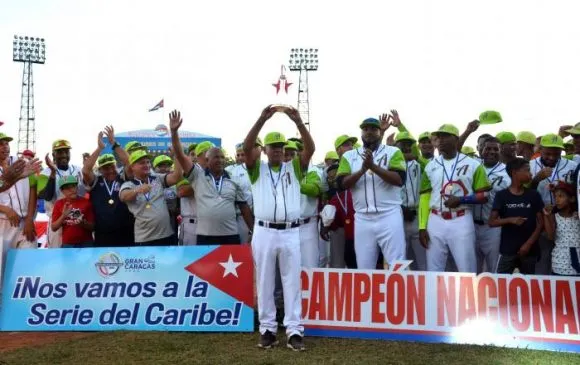
Ricardo López Hevia / Cubadebate
El equipo Agricultores, campeón de la I Liga Élite del béisbol cubano —que ha reseñado estupendamente el coterráneo @eduardo900613 en la comunidad Full Deportes— arrancó hoy con buen pie su paso por la Serie del Caribe Gran Caracas 2023, venciendo hoy a los Wildcats KJ74 de Curazao.
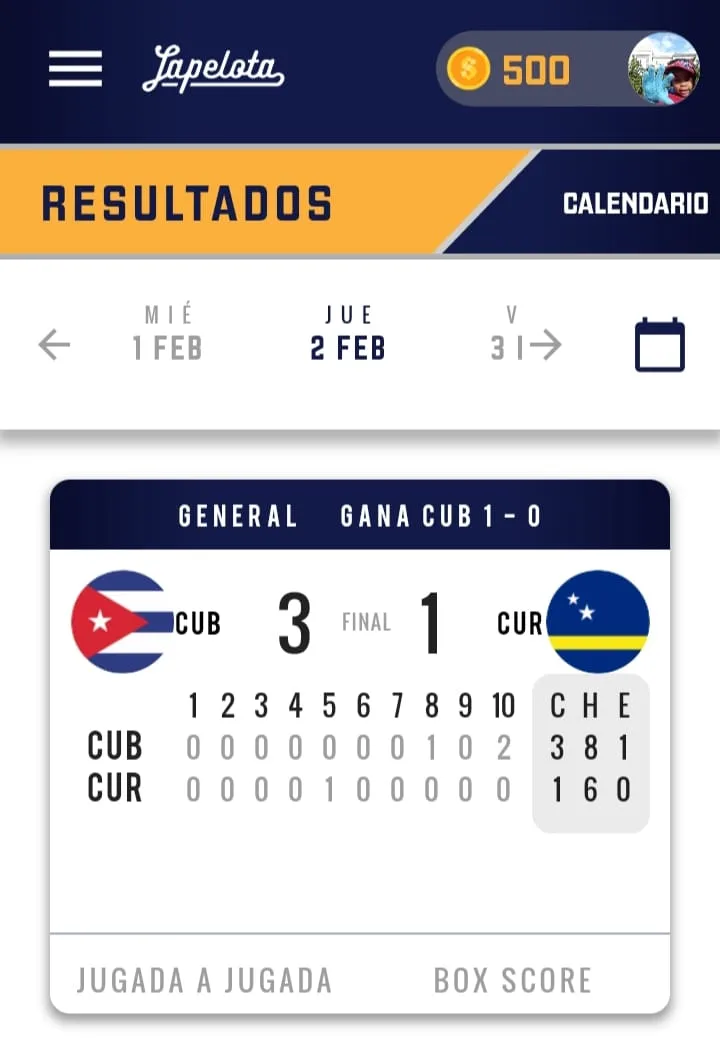
Captura de pantalla de la aplicación Lapelota, vía Facebook.
No importa cuán fuerte sea el reto o los errores en la selección del equipo en las dimensiones deportiva y extradeportiva —cuestiones en las que nunca nos ponemos de acuerdo los cubanos—. Como aficionado, siempre recibo estos eventos con toda la ilusión, lleno de buena vibra por el conjunto, y solo lo que suceda en el terreno me saca de ese camino.
Hay un gran debate, que lleva años, sobre la “crisis” del béisbol cubano, y quisiera hacer unos breves comentarios al respecto. Lo primero es que existe una sola crisis en el orden social —general—, que repercute luego en todos los escenarios en que como cubanos nos desenvolvemos; el béisbol es tan solo uno de ellos.
Pero igual debemos entender que la crisis específica alrededor de nuestro deporte nacional es relativa, o solo aplica cuando hablamos del que se está jugando en Cuba. ¿Por qué la distinción es importante? Porque la noción de béisbol nacional, o béisbol cubano, hace mucho tiempo que no se circunscribe —o no se debe circunscribir— a lo que sucede con nuestros torneos locales, que fue la regla por mucho tiempo y no por política, sino por el sentir popular.
The Agricultores team, champion of the first Elite League of Cuban baseball —which has been reviewed wonderfully by @eduardo900613 for the FullDeportes community— is already representing Cuba in the Gran Caracas 2023 Caribbean Series. Indeed, they just won their first game.
No matter how strong is the challenge or the mistakes in the selection of the team in the sporting and non-sporting dimensions —issues on which we Cubans never agree—. As a fan, I always receive these events with all the illusion, full of good vibes for the team, and only what happens on the field takes me out of that way.
There is a great debate, which has been going on for years, about the "crisis" of Cuban baseball. In truth, there is only one crisis in the social order —general—, which then has repercussions in all the scenarios; baseball is just one of them.
But we must still understand that the specific crisis surrounding our national sport is relative, or only applies when we talk about the one being played in Cuba. Why is the distinction important? Because the notion of national baseball, or Cuban baseball, has not been circumscribed for a long time —or should not be circumscribed— to what happens with our local tournaments, which was the rule for a long time and not because of politics, but because of popular sentiment.
El béisbol y yo
Un poco de historia desde mi perspectiva como aficionado. En los 90 comienza la interminable sangría de peloteros cubanos rumbo al sueño —para muchos no concretado— de jugar en Grandes Ligas. Y aunque desde el año 2000 se afianzó esa tendencia, todavía la pelota que se jugaba en Cuba gozaba de prestigio y era la principal atracción para los aficionados locales a este maravilloso deporte.
Tengo claro algo: el béisbol contribuyó a que la gran crisis de los 90 para los cubanos fuera más llevadera —como la música—. Se vivía con intensidad y emoción incomparables. Yo, todavía un niño con 6 y 7 años, coleccionaba los equipos según iban saliendo en la prensa —ese mero acto constituía un gran acontecimiento—, las fotos, e incluso puedo decir que la única cosa que he robado en mi vida fue una guía de nuestras Series Nacionales del año 1973, extraída de la biblioteca de mi escuela primaria.
Mi equipo, aunque soy holguinero, era Santiago de Cuba. Con los años intenté conectar más con mis Cachorros, pero nunca fue igual que con los de la tierra caliente. Recuerdo al núcleo duro de aquellos equipos de Santiago en los 90 como si fueran a jugar hoy: entre los lanzadores estaban los Tissert, José Luis Alemán, Rubén Rodríguez, Ariel Cutiño —que también bateaba—, Norge Luis Vera y Ormari Romero, y como jugadores de posición Manuel Benavides, Rey Isaac, Antonio Pacheco, Orestes Kindelán, Fausto Alvarez —que yo, como es natural, decía que era de la familia—, Gabriel Pierre, Luis Enrique Padró y Evenecer Godínez. Las de Padró y Evenecer no las recuerdo, pero podría imitar la postura en la caja de bateo del resto —algo así como lo que hace humorísticamente el gran Batting Stance Guy—.
Hoy no puedo hacer este recuento. Hace un tanto que no tengo motivación por seguir la pelota que se juega en Cuba. A nuestra pasión la han venido minando decisiones costosísimas a lo largo de los años, los cambios en el orden sociológico que impone la dinámica económica —desde cómo se valora la opción de emigrar hasta cómo se entregan los peloteros en los entrenamientos y en el terreno de juego—, y luego la imposibilidad —ya que de irse se trata— de que los jugadores cubanos puedan participar del béisbol de Grandes Ligas y tener una relación normal con su país, como el dominicano o el venezolano.
En lo último se había dado un paso gigante con el acuerdo entre Major League Baseball, la Major League Baseball Players Association y la Federación Cubana de Béisbol, que la administración Trump suspendió con una triquiñuela burocrática. El acuerdo no está roto, pero para funcionar necesita o bien una licencia específica del Gobierno estadounidense, o que este reconozca que —por lo menos técnicamente— la Federación Cubana de Béisbol no está supeditada al Gobierno cubano.
The baseball I enjoyed
One thing is clear to me: baseball contributed to making the great crisis of the 1990s more bearable for Cubans. It was lived with incomparable intensity and emotion. I, still a child of 6 and 7 years old, collected the teams as they were announced in the press —that mere act was a great event—, the photos, and I can even say that the only thing I have stolen in my life was a guide of our national series from 1973, taken from the library of my elementary school.
My team, although I'm from Holguín, was Santiago de Cuba. I remember the hard core of those Santiago teams in the 90s as if they were playing today: among the pitchers were the Tisserts, José Luis Alemán, Rubén Rodríguez, Ariel Cutiño —who also batted—, Norge Luis Vera and Ormari Romero, and as position players Manuel Benavides, Rey Isaac, Antonio Pacheco, Orestes Kindelán, Fausto Alvarez —who I, naturally, said was from my family—, Gabriel Pierre, Luis Enrique Padró and Evenecer Godínez. Those of Padró and Evenecer I really don't remember, but I could imitate the stance in the batter's box of the rest —something like what the great Batting Stance Guy humorously does—.
Today, I couldn't do this recounting. It's been a while since I've had any motivation to follow the ball played in Cuba. Our passion has been undermined by costly decisions over the years, the changes in the sociological order imposed by the economic dynamics, and then the impossibility of Cuban players being able to participate in Major League Baseball and have a normal relationship with their country, like the Dominican or Venezuelan players.
In the latter, a giant step had been taken with the agreement between Major League Baseball, the Major League Baseball Players Association, and the Cuban Baseball Federation, which the Trump administration suspended with a bureaucratic trick. That is, technically the agreement isn't broken, but in order to function it needs either a specific license from the U.S. Government, or its recognizing that —at least technically— the Cuban Baseball Federation is not subordinate to the Cuban Government.
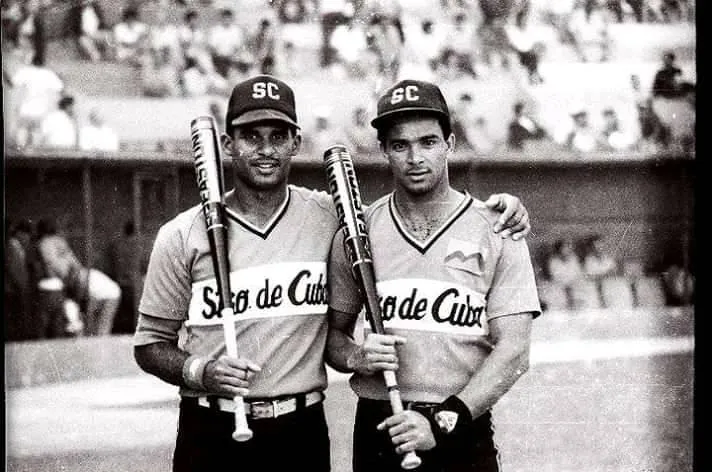
Orestes Kindelán (left) and Antonio Pacheco (right). Source: Fotos de La Habana.
¿Podemos salvar nuestro béisbol?
Hacer que cubanos como yo volvamos a sentir la pelota que se juega en Cuba es una tarea difícil, si no imposible atendiendo al contexto. Pero lo cierto es que algo hay que hacer. Miren, yo todos los días veo béisbol de Grandes Ligas —en vivo—, y lo disfruto sobremanera, pero para nada cambiaría un solo partido de los 90 o el primer lustro del siglo XX de nuestras Series Nacionales o Selectivas por lo mejor que haya presenciado en la llamada Gran Carpa. Ahí estoy en plan chovinista como Bad Bunny cuando realza a Roberto Clemente sobre Derek Jeter, a Barea sobre Lebron James —claro que desde lo simbólico—.
La pelota cubana necesita inversión. Eso es lo primero y casi todo. Hay que marquetear la Serie Nacional para inyectarle capital, y que el rendimiento de este luego produzca un efecto derrame que lleve implementos y otros recursos a la base, a las escuelas y barrios —aunque cuando yo y mis coetáneos éramos niños no nos hicieron falta—. El producto cubano vende, porque si somos la tierra de Martín Dihigo, Cristóbal Torriente, Aquino Abreu, Braudilio Vinent, Antonio Muñoz, Agustín Marquetti, Omar Linares, Pacheco, Kindelán, José Ariel Contreras o “El Duque” Hernández, también lo somos de peloteros encumbrados ahora mismo en Grandes Ligas, como Yordan Álvarez, el “Yuli” Gurriel o José Dariel “Pito” Abreu.
Nuestro béisbol tendrá que ser económica y —en cierto grado— deportivamente gestionado por capital foráneo. Y deberá atraer peloteros de otras naciones, igual que nos acostumbramos —a regañadientes por mi parte— a los refuerzos locales.
Otro punto. De haberse sostenido, la relación con Grandes Ligas habría conducido —según pude indagar directamente con fuentes de la televisión cubana— a potenciar y estabilizar las transmisiones de ese béisbol aquí. Este es un tema que he discutido muchísimo, porque no hay manera de que la pelota pueda ganar enteros si no existe un equilibrio entre el fútbol que recibimos en nuestros medios y el béisbol de calidad. A veces me pregunto cómo no ha sido posible siquiera retransmitir las ligas japonesa o coreana aquí.
Y en la proyección internacional, pues continuar este camino que recién comienza, convocando a todos los atletas que quieran representar a nuestro país más allá de la cerrazón de un lado y la polarización y las presiones del otro. Para mí, esto es lo menos que podemos hacer.
Can we save our baseball?
To make Cubans like me feel again the ball played in Cuba is a difficult task, if not impossible considering the context. But the truth is that something has to be done. Look, I watch Major League Baseball every day —live—, and I enjoy it very much, but I wouldn't change a single game of the 90s or the first five years of the twentieth century of our National or Selective Series for the best I have witnessed in the so-called Big Tent. Here I'm being chauvinist like Bad Bunny when he enhances Roberto Clemente over Derek Jeter, Barea over Lebron James —of course that from the symbolic perspective, but in terms of identity it has a remarkable charge—.
Cuban baseball needs foreign investment. That's the first and almost everything. The National Series must be ready to receive that capital, and traduce its potential economic performance in a spillover effect that brings implements and other resources to the base, to schools and neighborhoods —although when I and my contemporaries were children we didn't need them—. The Cuban product sells, because if we are the land of Martín Dihigo, Cristóbal Torriente, Aquino Abreu, Braudilio Vinent, Antonio Muñoz, Agustín Marquetti, Omar Linares, Pacheco, Kindelán, José Ariel Contreras or "El Duque" Hernández, we are also the land of baseball players now in the spotlight in the Major Leagues, such as Yordan Álvarez, "Yuli" Gurriel or José Dariel "Pito" Abreu.
Our baseball will have to be economically and to a certain degree sportingly managed by foreign capital. And it must attract players from other nations, just as we've become accustomed —reluctantly on my part— to local reinforcements.
Had it been sustained, the relationship with Major League Baseball would have led —according to what I was able to find out directly from Cuban television sources— to strengthen and stabilize baseball broadcasts here. This is an issue that I have discussed a lot, because there's no way that baseball can recover ground if there's no balance between the soccer we watch in our media and quality baseball —now in zero—. Sometimes I wonder how it has not even been possible to broadcast the Japanese or Korean leagues here.
And in the international projection, to continue on this path that has just begun, summoning all athletes who want to represent our country beyond the closed-mindedness of one side and the polarization and pressures from the other. For me, this is the least we can do.
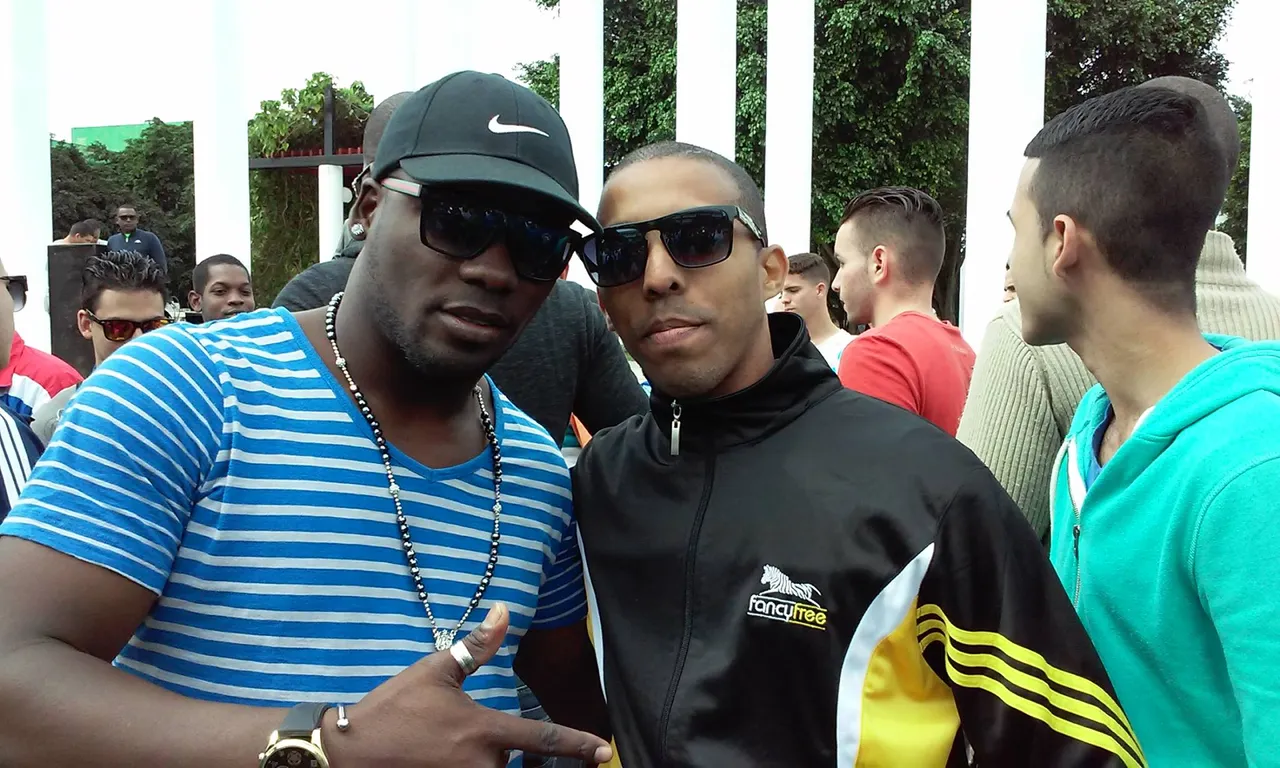 |  | 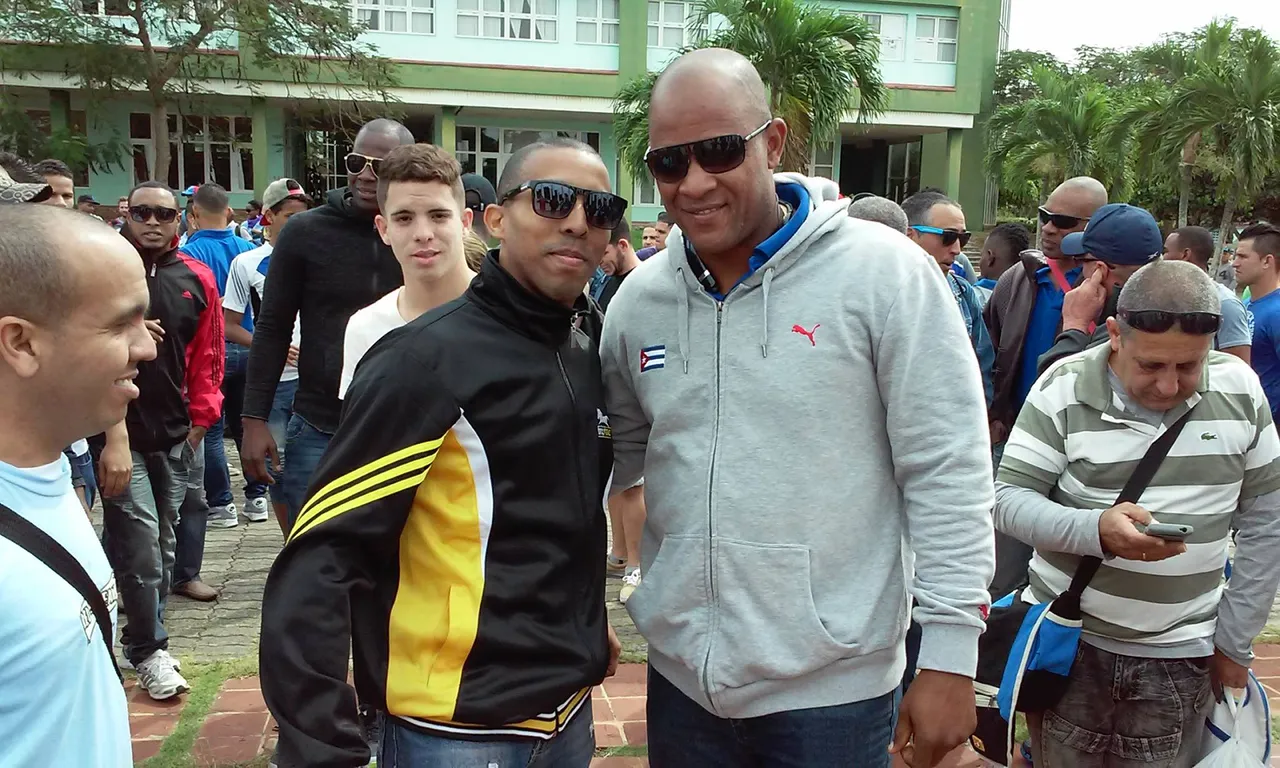 |
|---|
Muchas gracias por leerme. ¡Play ball!
Thank you very much for reading me. Play ball!
